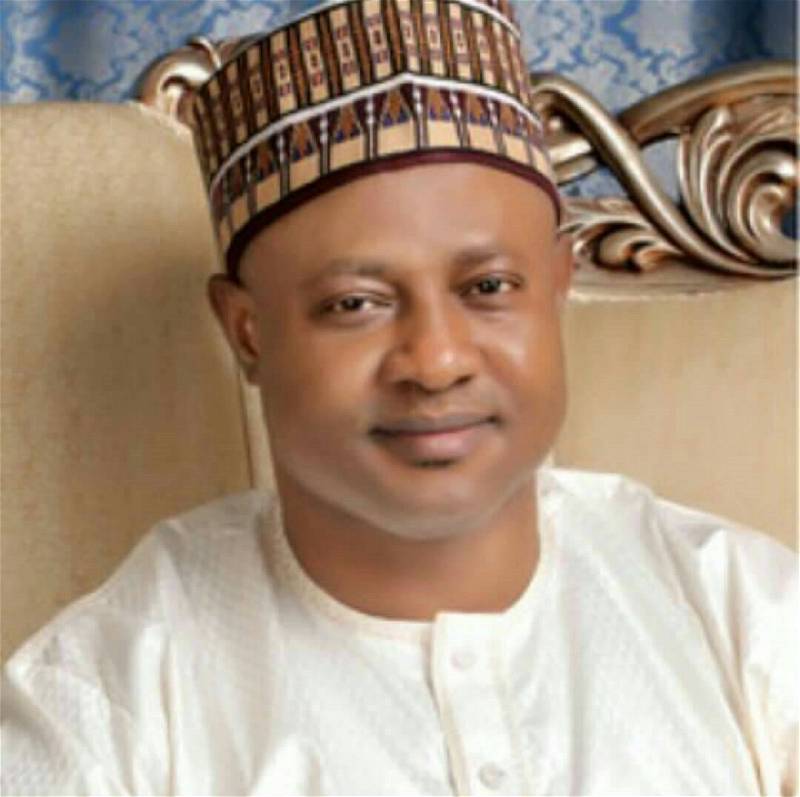A Federal High Court Lagos, on Wednesday, admitted extrajudicial statements of a witness, Bashir Garba, in the ongoing trial of Abdulahi Babalele, said to be son-in-law of former Vice President Atiku Abubakar.
An extrajudicial statement is an out-of-court utterance which can be either written or oral.
The Economic and Financial Crimes Comission (EFCC) accused Babalele of allegedly laundering about 140,000 dollars, in the build-up to the last general elections.
The defendant was first arraigned on Aug. 14, during the court’s long vacation before Justice Nicholas Oweibo, who sat as vacation judge.
He had pleaded not guilty to the charge and was granted bail in the sum of N20 million with one surety in like sum.
After the court’s resumption, however, the case file was re-assigned to a new judge, Justice Cjukwujekwu Aneke, and the defendant was re-arraigned on Oct. 8
He had also pleaded not guilty to the charges and was allowed to continue on the earlier bail.
At the last adjourned date, prosecution opened its case and called its first witness, Mr Bashir Garba, a clearing agent and friend to the defendant.
In his Chief examination directed by the prosecutor, Mr Rotimi Oyedepo, the witness had testified how he delivered the naira equivalent of the sum of 140,000 dollars to the home of former President Olusegun Obasanjo, following defendant’s instructions.
But, under cross-examination by the defence counsel, Chief Mike Ozekhome (SAN), the defendant affirmed that he wrote statements at the EFCC’s office during investigation.
When Ozekhome sought to tender one of his statement as an exhibit, prosecution raised objection on the tendering and admissibility of an extra judicial statement of a witness, citing the case of Okeke Vs State.
The court had then adjourned for ruling.
In his ruling on Wednesday, Justice Aneke, agreed with the submission of prosecution on the admissibility of such document, with an addendum that same could only be admissible, where proper foundation is laid.
The court then held that the defence was at liberty to lay the required foundation, if it so desired.
After the court’s ruling, Defence counsel (Ozekhome), then commenced cross examination of the witness, so as to lay the proper foundation as required by law.
Ozekhome outlined the various statements identified by the witness as made to the EFCC as: March 11, March 13, March 18 , March 29 and April 1 and then asked the witness if he maintains this position.
The witness replied Yes, and also confirmed that he made the statements honestly and was not compelled by the commission to do so.
When asked if he made the statements first hand when the incident was still fresh and wants same to adopted it as his, the witness replied Yes.
When reminded that he had told the court in his evidence that he received the sum of N50.4 million from the defendant for onward transmission to former President Olusegun Obasanjo in his Ota home, he replied Yes.
Defence counsel then asked that the witness be shown his statement of March 11 and urged him to read it aloud.
The witness read. …..”To change the dollars and deliver them in Ogun State, to Obasanjo’s library.
He continued:
….”He credited my account with the sum of N53 million Only; in UBA i received the sum of N26.5 million and in GT bank N26 million.
When asked to sum up the monies, the witness computed the total as N52.5 million.
But, he told the court that after changing the dollars at the rate of 360 to a dollar, the total sum amounted to N53 million.
When asked to divide the sum of N53 million by 360 exchange rate, the witness gave the result as 147,222
In continuation of his evidence, the witness told the court that he was directed by the defendant to take the sum to Obasanjo’s Library in Ogun state, adding that when he arrived, he was taken to “one man”.
He said that the man asked if he was Bashir and after confirming his identity, he handed the money to the man, and then called the defendant to inform him that the money had been delivered.
He told the court that he does not know the name of the man he handed the money.
Defence counsel then pointed out to the witness that in his previous evidence he had said he delivered the money to Obasanjo in his home, whereas, today he is saying the money was delivered in Obasanjo’s library to a man.
He also pointed out that it is evident that he had made mention of conflicting sums of N52.5 million, N50.4 million as well as N53 million, and informed the court that defence has been able to establish contradictions in the witness’ statement.
When defence sought to tender the statement of March 11, the prosecution raised objection on the grounds that defence could not tender only the statement since the witness made other statements which the defence was still withholding.
He urged the court not to admit the document as the court had already found it inadmissible, adding that whether the court can now admit same docuement can only be tested on appeal.
In his reaction, defence counsel said that in other to save the time of the Court, he would rather tender all the remaining statements in evidence.
Oyedepo did not obejct to this move by defence.
After tendering the statements, the court admitted and marked them as exhibits, P1A, P1B, P1C, P1D and P1E respectively.
The judge adjourned the case until Jan. 29 and Jan. 30, Feb. 12 and Feb. 13, 2020. (NAN)





